Detective recalls the fear created by 'The Fox'
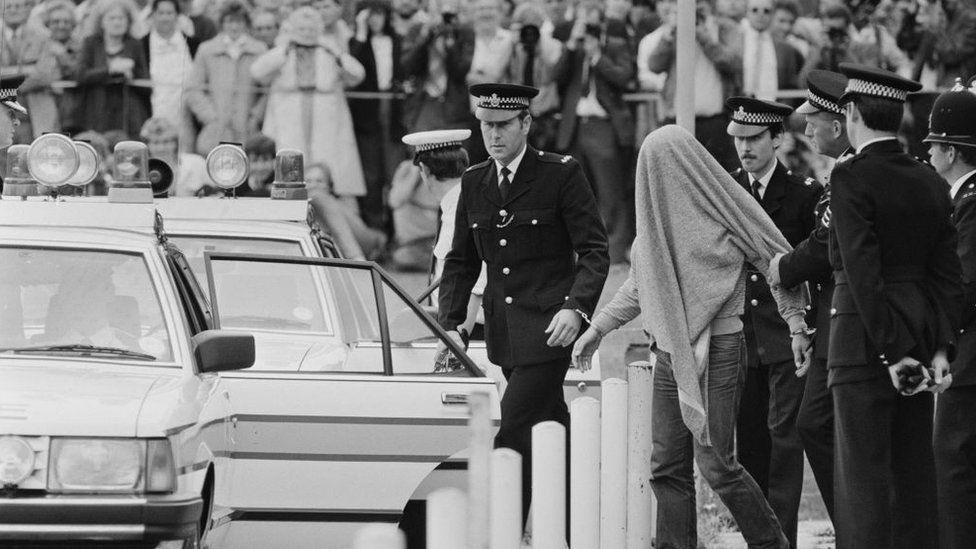
Malcolm Fairley was arrested in 1984 and sentenced to six life terms
- Published
The detective who led the hunt for a serial sex attacker dubbed "The Fox" says he never thought he should be released from prison.
Malcolm Fairley was sentenced to six life terms in 1985 after carrying out a series of sex attacks across Bedfordshire, Buckinghamshire and Hertfordshire, sparking one of the largest manhunts in British criminal history.
The 71-year-old was found dead at HMP Hull on 28 May 2024. An inquest at Hull Coroner's Court has concluded he died of natural causes — a heart attack.
Former Det Ch Supt Brian Prickett, who led the criminal investigation, said people in the area the attacks were being carried out had been living in a "triangle of fear".
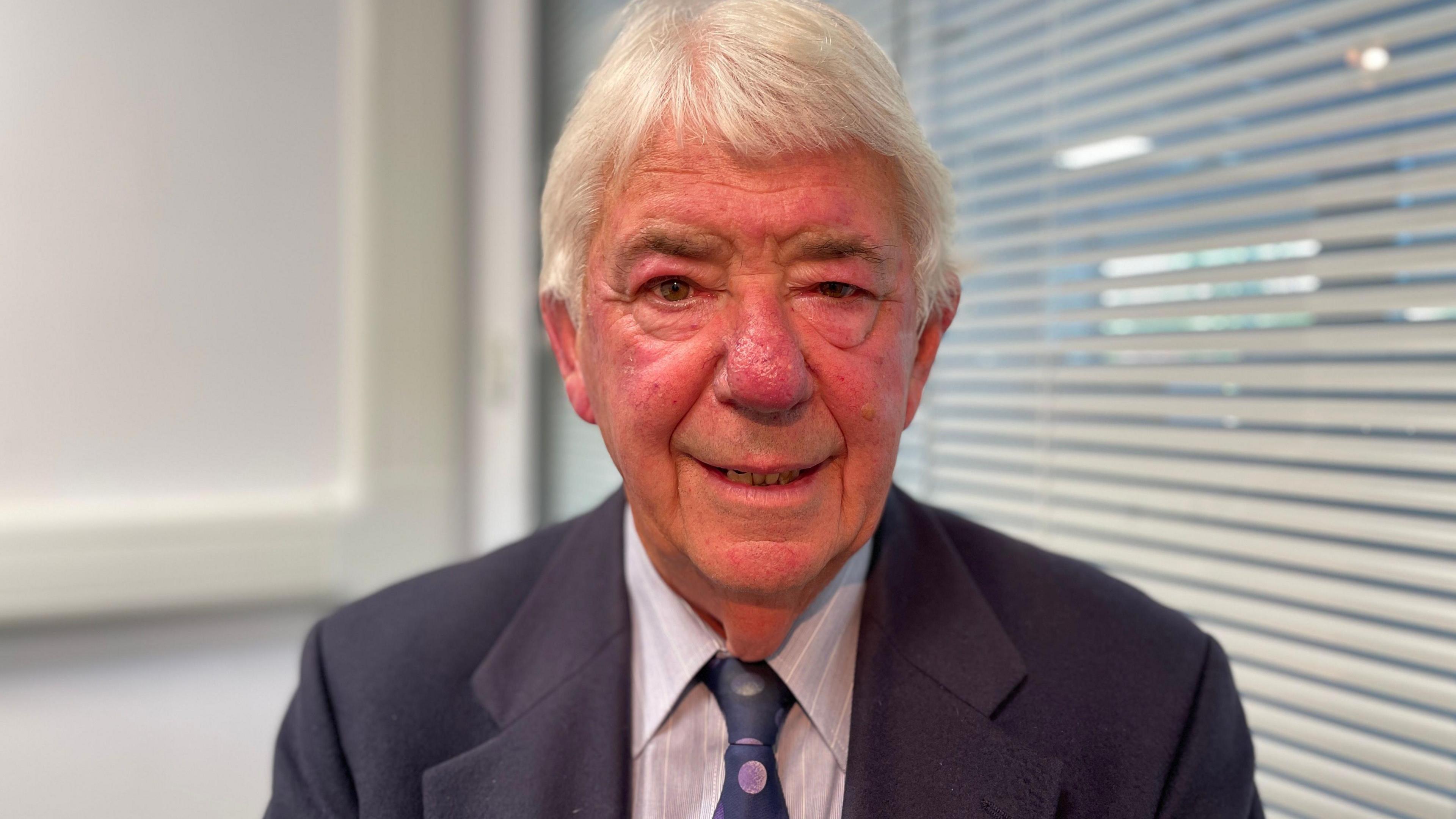
Brian Prickett led the original investigation into the sex attacks by "The Fox"
The Triangle of Fear
In the 1980s, Fairley caused terror in towns and villages across Bedfordshire, Buckinghamshire and Hertfordshire.
At its height in the summer of 1984, there were three attacks in just one week.
Some 200 officers were based across what they called "The Triangle of Fear" between Dunstable and Leighton Buzzard in Bedfordshire, and Tring in Hertfordshire, where Fairley was carrying out his attacks.
Det Ch Supt Prickett said he soon realised they were dealing with a "shocking and degrading" pattern of behaviour.
"He would break into people's homes when they were in bed at two or three o'clock in the morning carrying a sawn-off shotgun, and wake the couple up at the side of the bed," he said.
Fairley would carry out "horrendous sexual acts and rape" on the woman, while the man was tied up. Sometimes they were tied to each other.
"The amount of fear in the area was incredible," said the retired officer.
"That summer was particularly hot and people were having to bolt their windows, in some cases screw them down, because of the fear.
"We did everything we could to alleviate the fear by making sure people knew that we were working flat out."
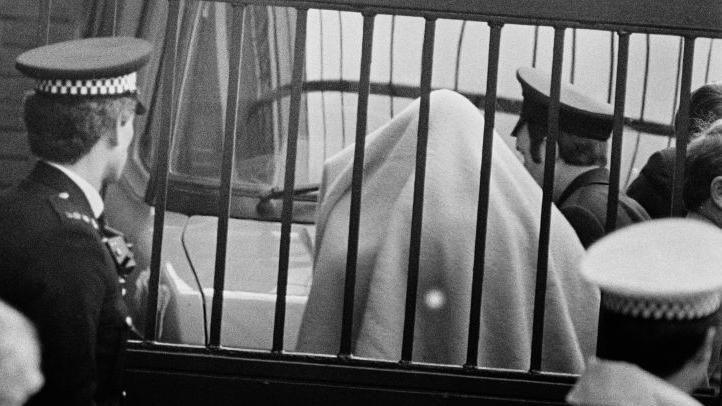
Malcolm Fairley committed violent and sexual attacks across Bedfordshire, Buckinghamshire, Hertfordshire, as well as in South Yorkshire and north-east England
Nine months before DNA could be used
Fairley was nicknamed The Fox because he would also build dens in the houses he broke into while waiting for the occupants to return.
He prepared and ate meals in their homes, watched television and collected trophies before committing the violent attacks.
It took police six months to identify him and track him down.
Mr Prickett and his team were commended for their work by the judge at Fairley's trial.
"There was no CCTV and no mobile phones and messages were being passed from force to force because it was a major inquiry that linked seven forces," said the detective.
Police set up an incident room in Dunstable and one in Rotherham, where Fairley had also carried out sexual attacks.
"Every time he carried out an offence we were able to establish a bit more information about him, and eventually we worked out he had an accent from a very narrow area of the north-east of England."
The ability for police to use DNA evidence to track down suspects was not quite in place yet.
"I went to see the professor who was discovering DNA at Leicester University and he told me that we are about nine months to a year away from being able to use it, so we had to gather all the forensic evidence we could from the scenes," said Mr Prickett.
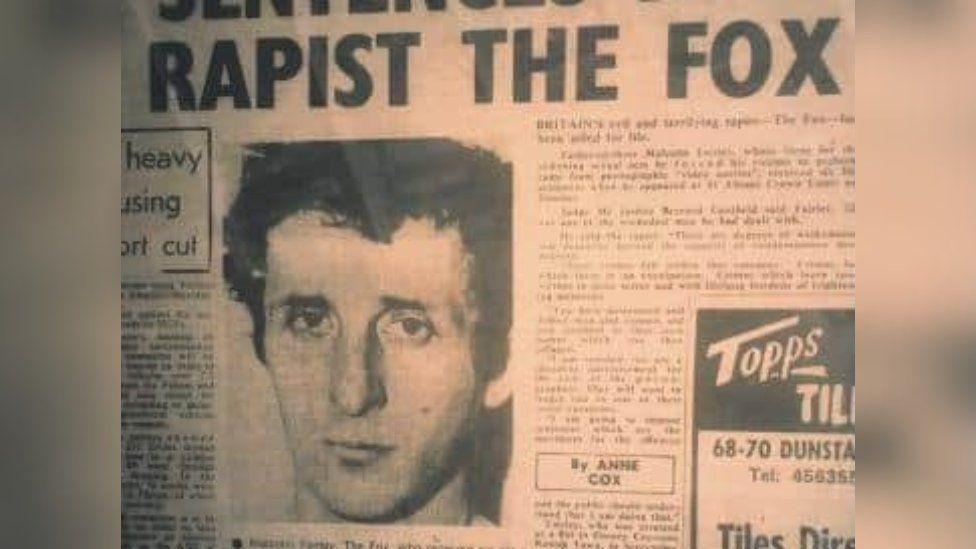
The serial sex attacker prompted one of the largest manhunts in British criminal history
'An insignificant fellow'
Fairley was arrested in September 1984 at his home in Kentish Town, north London, after forensic evidence linked his car to an attack.
Mr Prickett says the impact of the attacks lasted indefinitely.
"I've always been concerned in my career that a lot of emphasis is placed on the offender and not on the victim. We had teams whose sole duty was to support the victims, some of whom never recovered," he said.
The overriding feeling of a number of the male victims involved was that they could have done more to help their female partners, which affected their relationships, he added.
"People say 'we've got justice', but it doesn't compensate for what happened to them," said Mr Prickett.
"At no time did he show any remorse whatsoever. He was an insignificant fellow who you would probably walk by on the street and take no notice of."
The attacker who created a ‘Triangle of Fear’
Brian Prickett, the lead detective in the case, remembers how events unfolded in 1984.
At the time of his arrest, Fairley had committed 81 offences.
He was given his six life sentences at St Albans Crown Court in 1985. He was considered for release in 2023, but the Parole Board rejected it.
The inquest into his death in prison heard Fairley had been "dead for quite sometime" before he was found.
"In Malcolm Fairley's case I was always of the view that he would be one of the people who never came out of prison... because he was still considered a danger," adds Mr Prickett.
"Whatever the result of the inquest I don't think people take joy in the fact he died, but I think they take relief from the fact he was convicted."
Get in touch
Do you have a story suggestion for Beds, Herts & Bucks?
Follow Beds, Herts and Bucks news on BBC Sounds, Facebook, external, Instagram, external and X, external.
- Published29 May 2024
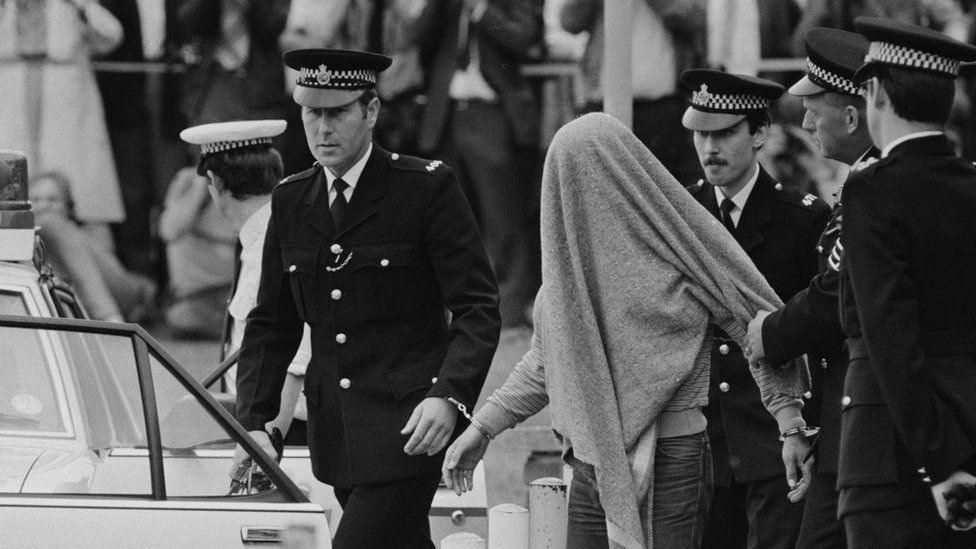
- Published8 April 2024
